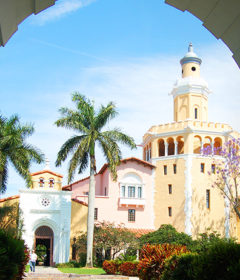Law professor to address Citizens United
On May 18, nine constitutional law scholars, including Assistant Professor Ciara Torres-Spelliscy of Stetson’s College of Law, filed an amicus brief in the U.S. Supreme Court, urging the Court to revisit Citizens United. The brief was written by the Brennan Center for Justice at the NYU School of Law.
The brief urges the Court to grant certiorari in American Tradition Partnership v. Bullock, a case on appeal from the Montana Supreme Court that upheld Montana’s century-old ban on corporate political expenditures. Along with Montana’s historic ban, the brief urges the Court to consider the experience of federal elections in the past two years since Citizens United, including the growing trend of candidate-specific Super PACs spending millions of dollars during elections.
“American Tradition Partnership presents the Supreme Court the first opportunity to revise its stance in the controversial Citizens United v. FEC, which granted corporations the First Amendment right to spend unlimited funds in federal elections,” said Professor Torres-Spelliscy, an expert in constitutional law and campaign finance issues.
Montana’s Supreme Court held that Montana’s ban on corporate political expenditures, enacted by a citizen initiative in 1912, was justified by the state’s history of corporate political corruption. Plaintiffs in the cases are requesting that the Court reverse the Montana state court ruling without considering any of the evidence of Montana’s history of political corruption.
“This is a perfect opportunity for the Supreme Court to review the contours of Citizens United’s holding in light of two factual records: (1) Montana’s experience with corporate political abuses in the last century, and (2) the potential for modern corporate corruption in the era of Super PACs,” said Professor Torres-Spelliscy.
Professor Torres-Spelliscy is joined by professors from Columbia Law School, University of California Irvine School of Law, State University of New York, University at Buffalo Law School, University of Miami School of Law, University of Michigan Law School, Harvard Law School, American University Washington College of Law, and Fordham University School of Law.



